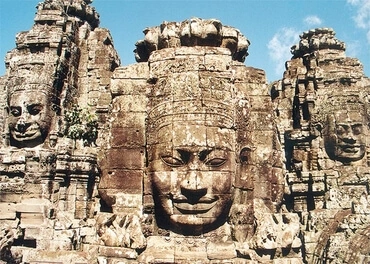Man (as in person or human being)

Man" is a tricky word to discuss, because the Hebrew of the Old Testament uses six different words that are generally translated as "man," with shades of meaning that are difficult to express in English. Swedenborg, meanwhile, uses two different words in the original Latin: "vir," which is a singular male person, and "homo," which usually has a meaning akin to "mankind" or "humanity" -- but is sometimes used for a singular male person as well. When used in the sense of "human" or "mankind," the meaning of "man" is based on the fact that the Lord is the perfect, divine human, and is in a way the archetype for our humanity. The Lord is, in His essence, love itself -- perfect, infinite, divine love, which is the source of all life. So in the ultimate sense, "man" represents the Lord's love and goodness. In less exalted uses, it represents the love and goodness that exists in churches, societies, and individual people. That's because the love we have, as individuals and collectively, is a reflection of the Lord's love, and our humanity is a reflection of the Lord's humanity.
This video is a product of the New Christian Bible Study Corporation. Follow this link for more information and more explanations - text, pictures, audio files, and videos: www.newchristianbiblestudy.org
Marriage #46
46. On the plurality of wives among Mohammedans
I spoke with Mohammedans about spiritual marriage, saying that it is a marriage of good and truth; that good loves truth and truth good like a married couple; and that these wish to be joined and bring forth goods and truths like daughters and sons, and as it were to procreate families. They understood this well, as also that conjugial love comes down from that spiritual origin, and that everything spiritual in man undergoes a change, so that it is scarcely recognisable, when it comes down to the natural; it can only be recognised by correspondences. From these facts it is plain that they, having several wives allowed by their religion, cannot have truly conjugial love. It was said that they are allowed several wives, that is, polygamy is permitted, because they live in hot climates and therefore are more heated with lust than those who live in cold climates. 1 Therefore if they were not permitted polygamy, more of them would rush into adultery than would Europeans, and thus act contrary to their religious tenets; and to act contrary to one's religious tenets is to profane what is sacred. It was shown further that all their love of marriage is lascivious, and so not spiritual; nor can it become spiritual unless they acknowledge the Lord.
Footnotes:
1. Two clauses have been inverted, with suppression of the word 'and' in order to make sense here. It is also possible that a word is missing from the text.







